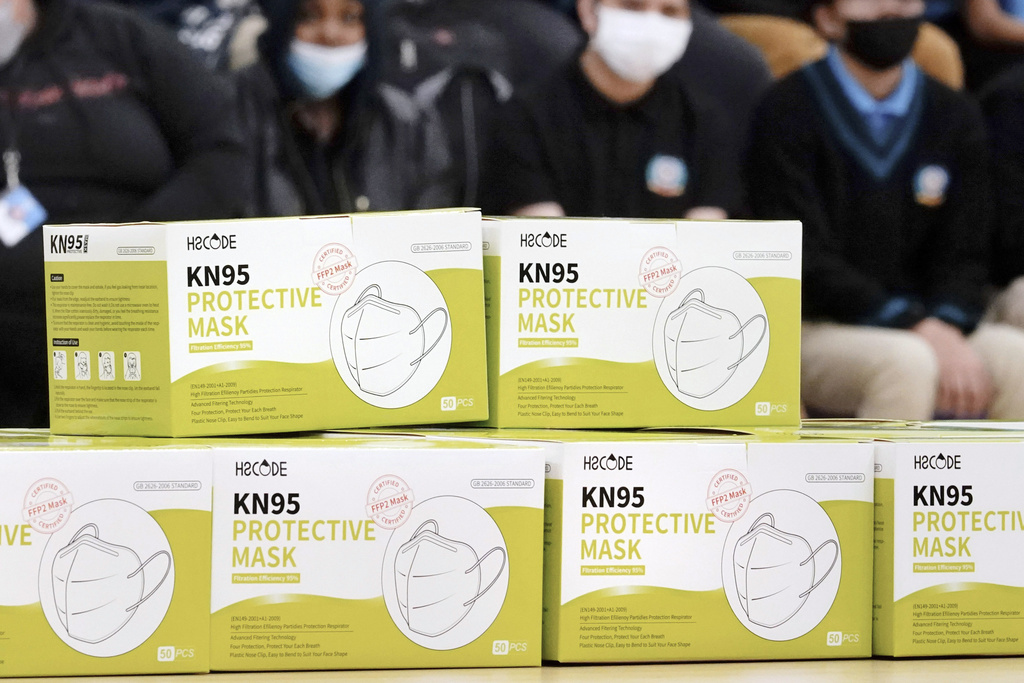TRENTON, N.J. (AP) — A federal appeals court shot down claims Feb. 5 that New Jersey residents’ refusal to wear face masks at school board meetings during the COVID-19 outbreak constituted protected speech under the First Amendment.
The 3rd U.S. Circuit Court of Appeals issued a ruling in two related cases stemming from lawsuits against officials in Freehold and Cranford, N.J. The consolidated case is Falcone v. Dickstein.
The suits revolved around claims that the plaintiffs were retaliated against by school boards because they refused to wear masks during public meetings. In one of the suits, the court sent the case back to a lower court for consideration. In the other, it said the plaintiff had failed to show she was retaliated against.
Still, the court found that refusing to wear a mask during a public-health emergency didn’t amount to free speech protected by the Constitution.
“A question shadowing suits such as these is whether there is a First Amendment right to refuse to wear a protective mask as required by valid health and safety orders put in place during a recognized public health emergency. Like all courts to address this issue, we conclude there is not,” the court said.
The court added: “Skeptics are free to — and did — voice their opposition through multiple means, but disobeying a masking requirement is not one of them. One could not, for example, refuse to pay taxes to express the belief that ‘taxes are theft.’ Nor could one refuse to wear a motorcycle helmet as a symbolic protest against a state law requiring them.”
Ronald Berutti, an attorney for the appellants, said they intend to petition the U.S. Supreme Court to hear the case.
The lawsuits were filed by George Falcone and Gwyneth Murray-Nolan.
Falcone attended a Freehold Township school board meeting in early 2022, when masks were still required. He refused to wear one, according to the court’s ruling, and was issued a summons on a trespassing charge. He also alleged a later school board meeting was canceled in retaliation for his not wearing a mask. A lower court found he didn’t have standing to bring the suit, and he appealed.
Murray-Nolan, who had testified before lawmakers on her skepticism toward the efficacy of masking, attended an early 2022 Cranford school board meeting without a mask despite a requirement for one. Less than a month later at the board’s next meeting, she was arrested on a defiant-trespass charge after attending without a mask. A lower court found officers had probable cause to arrest her because she failed to wear a mask as required under the law at the time. She appealed.
With regard to Murray-Nolan’s claim, the 3rd Circuit reached the merits by applying what is known in First Amendment law as the Spence test. This test is used to determine whether certain types of conduct are expressive enough to merit full First Amendment review. The test comes from the U.S. Supreme Court’s decision in Spence v. Washington (1974). The test requires that (1) the individual must intend to convey a particularized message, and (2) that the audience reasonably understand what that message is.
Applying this test, the 3rd Circuit reasoned that Murray-Nolan could not satisfy the second part of the test, because “it is unlikely that a reasonable observer would understand her message simply from seeing her unmasked at the Board meeting.”
Eric Harrison, an attorney for the officials named in the suit, lauded the ruling Tuesday. In an emailed statement he said that refusing to wear a mask in violation of a public-health mandate “is not the sort of ‘civil disobedience’ that the drafters of the First Amendment had in mind as protected speech.”
New Jersey’s statewide order for public masking in schools ended in March 2022, shortly after the incidents described in the suits.
David L. Hudson Jr. contributed to this report.
The Free Speech Center newsletter offers a digest of First Amendment- and news media-related news every other week. Subscribe for free here: https://bit.ly/3kG9uiJ

